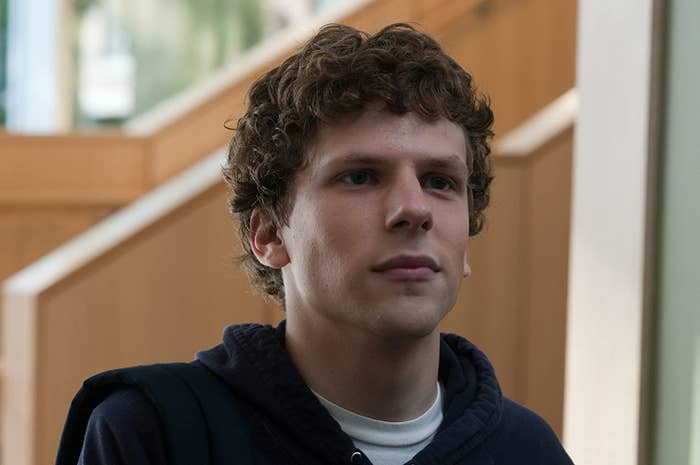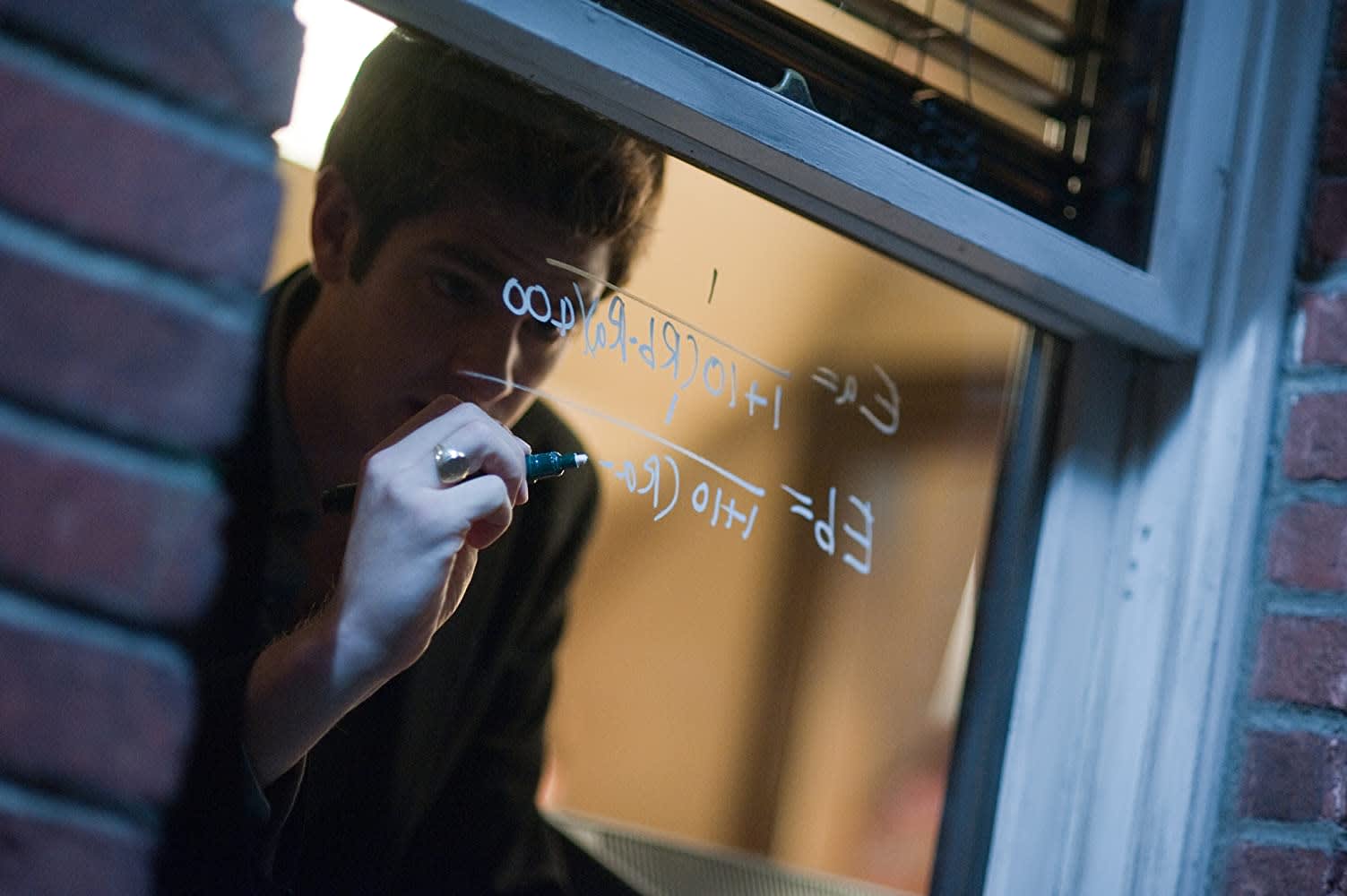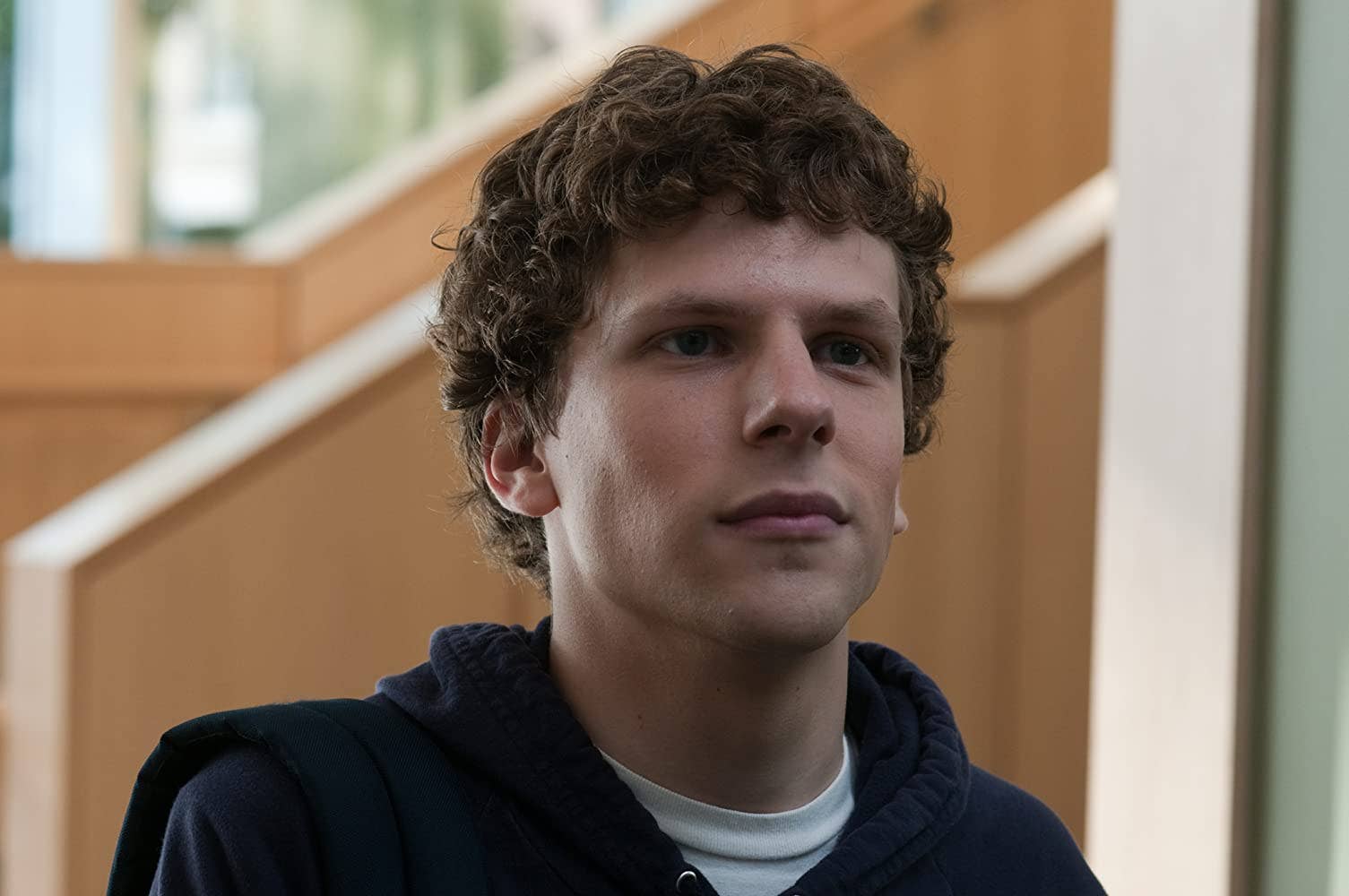
Making a movie about Facebook seemed like a baffling choice in 2010. A decade ago, the social media platform was in its halcyon days, a few years out from moving past its invite-only exclusivity, CEO Mark Zuckerberg focused on leveraging his website as the way to connect people across the globe. It was a site for people to stay in touch, share photos, relive moments, figure out if that person in your chemistry class was dating someone, talk about your day, and more. Facebook was, in a sense, pure—insofar as the Internet can be pure. It was hard to comprehend what a “Facebook movie” might even look like, let alone who would write, direct, and star in such a project.
Those concerns seem quaint now. A full decade out from its initial release, The Social Network not only continues to hold but somehow becomes even better with age. The David Fincher-directed, Aaron Sorkin-scripted, Jesse Eisenberg-, Andrew Garfield-, Justin Timberlake-, and Armie Hammer-starring film is a Shakespearian look at friendship, loyalty, jealousy, class, betrayal, power, creation, the desire for connection, and so much more. In my estimation, the movie is a masterpiece and the defining cinematic work of the last decade, offering a prescient look into the future of American society.
The Social Network’s legendary status starts with an atypical creative pairing. Uncompromising visionary David Fincher is one of our foremost purveyors of perverts, diving deep into the pitch-dark soul of the white American male (Fight Club is perhaps the most fitting example of this). Aaron Sorkin infamously detests the internet with a special kind of fury and has carved his legacy as one of America’s biggest mansplainers of how things should really go. Fincher’s dark attitude and Sorkin’s over-the-top tendencies seem intrinsically at odds with one another. Yet, in these two seemingly dissimilar talents, there’s harmony: the two, dueling depositions Mark Zuckerberg (Eisenberg) finds himself in—one with his best friend (Garfield) and one with his competition (Hammer)—give Sorkin his beloved courtroom setting and rapid-fire dialogue and serve as a foundation for Fincher to build a propulsive machine around. In turn, Fincher plays into the dark tones of the story—the desire for connection, the power struggle, the betrayal of a close friend—which helps to sand the edges off Sorkin’s inclination to overdo. These big ideas unfold across stark contrasts of old and new money. Mahogany backrooms of East Coast elites seem eerily dark against the crystal-clear windows of Silicon Valley, while Trent Reznor and Atticus Ross’ kinetic score pulses along in the background. These pieces form the whole, resulting in a narrative as shockingly compelling as the power struggle at the heart of Facebook’s origin.
At the heart of it all, of course, is Mark Zuckerberg. As portrayed by Eisenberg, Zuckerberg’s character is a creep and a weirdo—a fact made known from the needle-drop (remember when slowed-down song covers were a novelty?) in the film’s very first trailer. Fincher, Sorkin, and Eisenberg’s take on Zuckerberg is deeply Machiavellian, a radical departure from the perceived dweebish, deer-in-the-headlights reality of the actual Zuckerberg. Eisenberg infuses the character with an air of superiority; more often than not, the character is merely tolerating the events around him long enough to get back to his computer where he’s in control. At the time of The Social Network’s release, Zuckerberg’s public persona was still enigmatic, making it easier to accept the character as canon. Creation myths do need their devil, and Eisenberg is more than willing to be his advocate.
As for the devil, it might as well be Timberlake’s Sean Parker. The casting of one of our generation's top pop stars as Napster’s founder is perhaps the film’s most overt and winking juxtaposition. Still, Timberlake’s inherent showmanship dovetails nicely with Parker’s used car salesman vibe. Once Timberlake fully enters the picture into the second hour of the film, he threatens to wrestle the story away in the same way his character seeks to work his way into Facebook.com.
While he was still a few years away from becoming Sony’s (Amazing) Spider-Man, Andrew Garfield immediately jumps off the screen in The Social Network. The (then) relatively unknown British talent infuses the film’s version of Eduardo Saverin full of electric charisma. Garfield’s Saverin is so carefree, so fun to watch, that it makes you wonder why he’s hanging out with the perpetual wet blanket that is Zuckerberg. This chill fades away when it needs to, as Garfield convincingly sells Saverin’s careen into fury; his final scene remains one of the movie’s most quotable and rewatchable moments due to how well the actor conveys his character’s caged anger. It’s a performance that signaled Garfield as one of our generation’s most interesting actors, a reputation he’s embraced as he’s bounced from one wild projectto another in the wake of The Amazing Spider-Man’s failure.

Hammer’s dual Winklevii performance continues to impress even a decade later. The film’s best special effect, the Winklevoss twins, is famously portrayed by the actor in a bit of CGI trickery that’s virtually seamless. As avatars of old-money influence and privilege, the Winklevii straddle the line between enterprising young men and male Karens—they don’t hesitate to literally call for their daddy when they realize Zuckerberg has duped them. Despite the characters’ pretentious douchebaggery, Fincher and Sorkin seem to have a profound admiration for Hammer, giving him not only some of the movie’s best one-liners but one of the movie’s most impressive cinematic moments, too.
The Social Network’s other memorable moment solidified Rooney Mara as one of our best new talents. Despite her limited screen time, Mara’s Erica Albright is a ghostly presence that haunts the film’s entire run time. The infamous 99-take opening scene might as well be a tennis match; it’s certainly shot, written, and performed as an escalating series of verbal volleys. Not only does it teach the audience how to watch the rest of the movie but serves, in miniature, as the movie’s larger thesis to the world.
While Albright’s “you’re an asshole” closer is entirely fiction, the horror at the core of Facebook’s creation is decidedly real. A dastardly, misogynistic night in Kirkland House is more than just a skeleton in the company’s closet, with Fincher and Sorkin realizing from the start the core of Facebook was rotten. If anything, with the benefit of hindsight, The Social Network's searing critique doesn't go far enough in its treatment of Zuckerberg. It’s unsurprising that a platform built on such awful foundations has descended into spreading disinformation and evil conspiracy theories in 2020. Zuckerberg continues to reject Facebook’s culpability as a home for these horrid ideas, playing the middle to maximize profits for himself. While other platforms have made small strides in stopping alt-right ideologies and QAnon, Facebook hasn’t acted at all, letting the group flourish through inaction. The Social Network couldn’t have predicted these specific outcomes, but the movie certainly provided critical insight into how these toxic traits have been allowed to linger for so long. In reality, Zuckerberg will tell you he’s not the loner who creates with reckless abandon. Still, those words ring hollow as the CEO continues to be incapable of realizing the full consequences of his actions.
When not bleeding over into the real world, The Social Network has left a considerable footprint in the film industry. Eisenberg, Garfield, Hammer, and Mara have all gone on to have flourishing careers—finding success in smaller dramas such as The Art of Self-Defense, Under the Silver Lake, Call Me By Your Name, and A Ghost Story, respectively. Attempts at headlining franchise fare such as Batman v. Superman, The Amazing Spider-Man, The Lone Ranger, and The Girl With the Dragon Tattoo have worked to varying degrees. All this talk of IP is fitting, however, as The Social Network signaled the beginning of the end for the big theatrical drama. In 2010, we were still a few years away from the superhero movie’s box office stranglehold, meaning there was still a space for splashy dramas. In subsequent years, Hollywood’s desire to turn everything into a franchise has pushed many prestige dramas to streaming services, where the financial expectations aren’t so burdensome. Both Fincher and Sorkin will have fall 2020 releases on Netflix; Mank is Fincher’s story about the making of Citizen Kane (which will make for a great double-feature with The Social Network), and The Trial of the Chicago 7 sees Sorkin return to courtroom drama, where he first cut his theatrical teeth. Streaming services allow both creatives the freedom not to be concerned about shoehorning IP into something palatable for massive audiences. Notably, the storytellers behind one of the most prolific movies about the internet are now making movies for the internet—just goes to show you how dramatically Hollywood can change in a decade.
So much has changed for Facebook and The Social Network in the last 10 years. The skepticism the movie once faced at every turn is now long gone. What remains is a totemic achievement, a 21st-century Citizen Kane, and infamy worthy of the platform its story chronicled. How do you separate truth from lies when it comes to the real story? As the company continues to make headlines year after year, it’s clear you can’t. The legacies of both Facebook and The Social Network are intrinsically tied closer and closer together.




